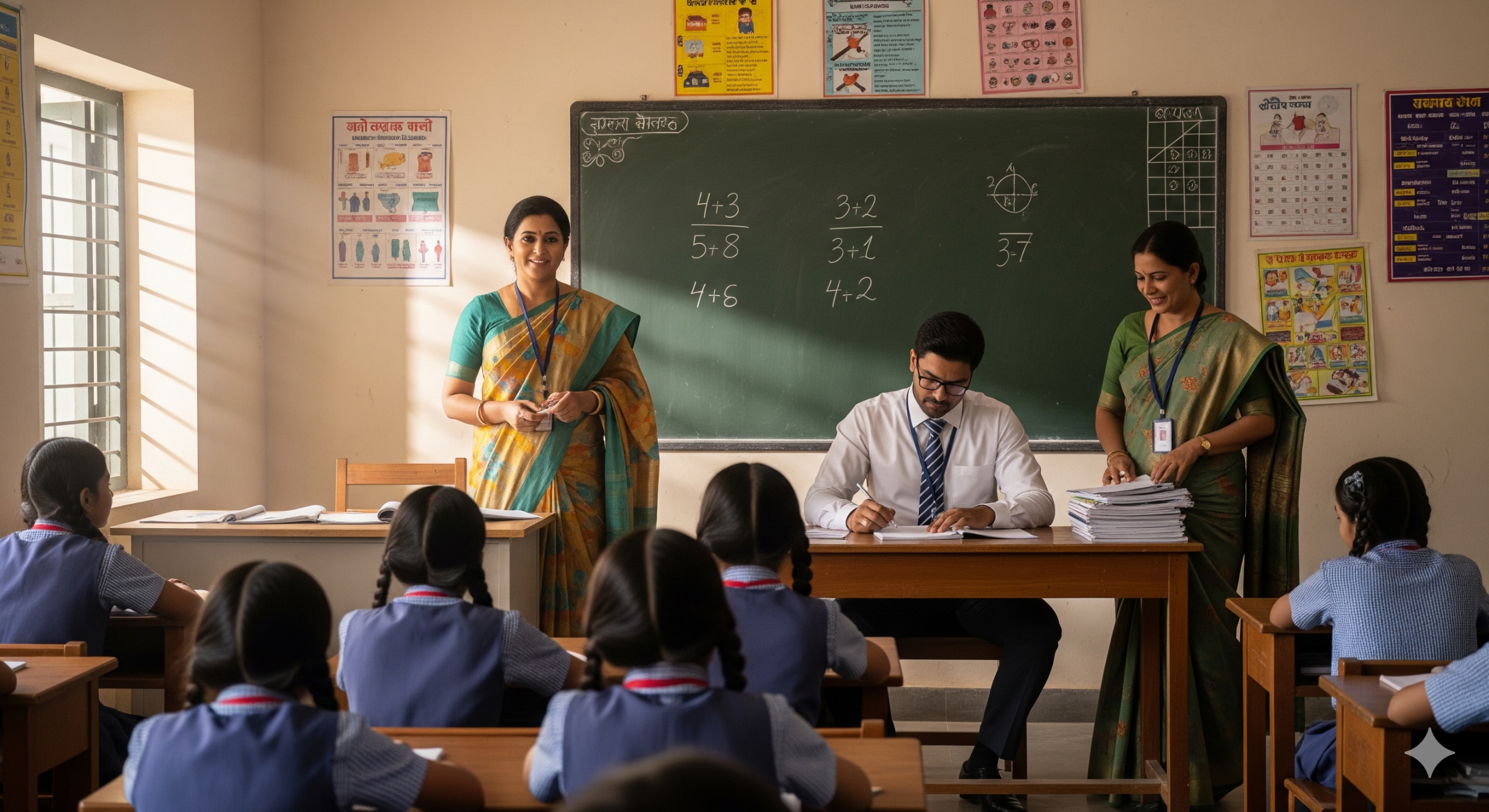On Teachers’ Day, India celebrates the invaluable contributions of its educators, who are shaping the nation’s future in alignment with Prime Minister Narendra Modi’s vision for a ‘Viksit Bharat’ by 2047.The National Education Policy (NEP) 2020 has placed teachers at the forefront of educational reform, empowering them through enhanced training, recognition, and resources. With a record-breaking teacher workforce, improved student-teacher ratios, reduced dropout rates, and increased female representation, India’s education sector is witnessing a transformative era, as outlined in recent government reports and initiatives.
Historic Milestone and Improved Learning Environments
The Unified District Information System for Education Plus (UDISE+) 2024-25 report marks a landmark achievement, with India’s teaching workforce surpassing 1 crore for the first time since UDISE+ began, reflecting a 6.7% increase from 2022-23. This growth addresses regional disparities, strengthens the foundation for quality education, and significantly improves the Pupil-Teacher Ratio (PTR) to 10:1 at the Foundational level, 13:1 at Preparatory, 17:1 at Middle, and 21:1 at Secondary levels, significantly improved ratio qua NEP’s recommended ratio of 1:30. These enhanced ratios enable teachers to provide personalized attention, fostering deeper student engagement and better academic outcomes.
NEP 2020: Transforming Teacher Training
NEP 2020 emphasizes teachers’ pivotal role in shaping India’s future, advocating for continuous professional development. The National Initiative for School Heads’ and Teachers’ Holistic Advancement (NISHTHA), launched under the Samagra Shiksha scheme, has trained over 63 lakh teachers across Elementary, Secondary, Foundational Literacy and Numeracy (FLN), and Early Childhood Care and Education (ECCE) levels. NEP mandates a minimum of 50 hours of Continuous Professional Development (CPD) annually, focusing on pedagogy, digital literacy, and subject expertise, ensuring teachers are equipped for modern classrooms.
The National Council for Teacher Education (NCTE) has notified norms for the Integrated Teacher Education Programme (ITEP), a four-year undergraduate course aligned with NEP 2020 and the National Credit Framework (NCrF), designed to equip teachers with 21st-century skills. The National Professional Standards for Teachers (NPST) defines competencies for effective teaching, while the National Mission for Mentoring (NMM) supports teachers’ professional and personal development through a robust mentorship network.
Empowering Women in Education
The UDISE+ 2024-25 report highlights a significant rise in female representation, with women now comprising 54.2% of the teaching workforce. This marks a positive shift towards gender balance in the education sector and reflects ongoing efforts to promote women’s participation in the teaching profession. The growing presence of female teachers can have a significant impact on creating inclusive, supportive, and gender-sensitive learning environments across all levels of schooling.
National Teachers’ Awards: Celebrating Excellence
The National Teachers’ Awards, a highlight of Teachers’ Day, honor educators who have elevated school education and enriched students’ lives. These teachers embody NEP 2020’s vision of holistic, child-centric learning, integrating innovative teaching methods and digital tools. Their dedication aligns with PM Modi’s call to recognize teachers as nation-builders, equipping students with the knowledge and values needed for a vibrant knowledge society. Recently, Prime Minister also highlighted that teachers not only shape the present but also mould the future of the nation making their role one of the highest forms of national service.














